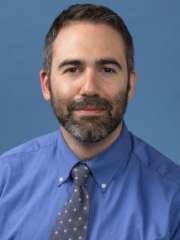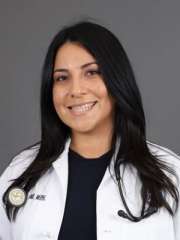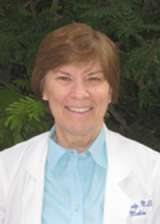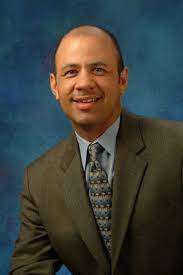Research Faculty

Ronald Brooks, PhD
Dr. Brooks is an Assistant Professor in the Department of Family Medicine who has been involved in HIV-related research and has provided training and technical assistance to providers involved in HIV medical care and prevention services for over 15 years. He is the Principal Investigator of the Health Resources and Services Administration, Special Projects of National Significance, Evaluation and Technical Assistance Center (ETAC) for the Use of Social Media to Improve Engagement, Retention, and Health Outcomes along the HIV Care Continuum Initiative which leads a multi-site evaluation and provides technical assistance to 10 demonstration sites funded across the country to implement this initiative. He is the Principal Investigator of a National Institute of Mental Health R21 grant to examine Pre-Exposure Prophylaxis (PrEP)- related stigma among Black and Latino men who have sex with men (MSM). In addition, he serves as a Co-Principal Investigator on a California HIV/AIDS Research Program-funded research study evaluating the use of social media in identifying and linking to HIV medical care and prevention services Latino MSM and as a Co-Investigator of the ETAC for the SPNS Outreach, Access and Retention among Latino/a Populations initiative. Dr. Brooks has extensive experience in providing training and technical assistance to multiple target populations (e.g., health departments, community-based organizations (CBO), and health clinics). He is currently a Capacity Building Assistance (CBA) provider on a CDC-funded CBA project providing training and technical assistance to state and local health departments across the country. In a previous grant, he also provided these services to community-based organizations across the country. He was the Project Director and Master Trainer of a 6-year state-funded training and technical assistance project focused on assisting health departments, community clinics, and CBOs in developing interventions for HIV-positive populations. Dr. Brooks was also a Master Trainer for a 3-year local health department-funded project on program evaluation which provided training and technical assistance to local CBOs in developing and implementing an evaluation of their HIV-related services. He is committed to undertaking social and behavioral research that will facilitate the adoption of biomedical HIV prevention strategies among minority MSM and other marginalized populations.

Tom Donohoe, MBA
Tom Donohoe is an Adjunct Professor of Family Medicine and serves as the Director/PI of the Pacific AIDS Education and Training Center (PAETC). He also serves as the Associate Director of UCLA Center for Health Promotion and Disease Prevention and was a Founding Member of the US/Mexico Border AETC Steering Team (UMBAST).

Karen Duvall, MD, MPH
Assistant Adjunct Professor, Department of Family Medicine
Karen Duvall, MD, MPH is assistant adjunct professor in the David Geffen School of Medicine Department of Family Medicine. She was Director of the Preventive Medicine Residency Training Program for 8 years. Recently she helped develop and direct a new Population Health fellowship in the Department. Dr. Duvall is currently involved in developing a 3-year medical school curriculum that will lead directly into the Family Medicine Residency Program. Dr. Duvall received her BA from Johns Hopkins University, M.D. from the University of Arizona and MPH from the UCLA School of Public Health. She completed her residency training in General Preventive Medicine and Public Health at UCLA, followed by a fellowship in clinical nutrition. She is a Fellow of the American College of Preventive Medicine. Dr. Duvall has been Principal Investigator on clinical trials investigating the impact of screening tools in primary care on early identification of COPD. She has also been site PI for a multi-center clinical trial on the evaluation of breast ductal fluid in high risk women. Her research interests have included reducing the risk of breast cancer through preventive measures such as nutrition and healthy lifestyle as well as designing non-invasive detection methods that may identify women at high risk for developing breast cancer. Currently she is involved in research studying the microbiome of the breast.

Lillian Gelberg, MD
Dr. Lillian Gelberg, MD, MSPH is a family physician, professor, and experienced health services researcher in the Department of Family Medicine at the UCLA David Geffen School of Medicine, Department of Health Policy and Management at the Fielding School of Public Health, and Office of Healthcare Transformation and Innovation of the VA Greater Los Angeles Healthcare System. She is an elected member of the National Academy of Medicine of the National Academy of Sciences. Dr. Gelberg has been PI or co-PI on over $90 million of research funding, published over 220 peer-reviewed papers, and mentored over 100 young investigators. Her work with low-income diverse patients of our federally qualified community health centers and homeless populations including Veterans and their families, and is advancing the national agenda to end homelessness and to promote healthy lifestyle change via integration of prevention into primary care - to reduce risky substance use, overweight/obesity and other metabolic diseases.

Geoffrey Gusoff MD, MBA
Dr. Gusoff is an HS Assistant Clinical Professor in the Department of Family Medicine. Dr. Gusoff obtained a BA degree in Public Policy and Religious Studies from Brown University, a Master of Theological Studies in Social Ethics from Boston College, an MD/MBA from the Perelman School of Medicine and the The Wharton School at the University of Pennsylvania, and an MSPH from the UCLA Fielding School of Public Health. He completed Family Medicine Residency clinical training at the University of Pennsylvania. Dr. Geoff Gusoff is a board-certified family physician and completed his post-doctoral research fellowship with the National Clinician Scholars Program (NCSP) at UCLA. His work focuses on the social and structural determinants of health, including a focus on the health impacts of innovative housing and business ownership models. He is particularly interested in the ways that home care cooperatives - businesses owned and controlled by home health aides - impact job quality and care quality in the home care industry, which is currently in the midst of a growing workforce crisis. Dr. Gusoff's research is funded by the Cornell University Center for Applied Research on Work (CAROW). A Pisacano Scholarship for Family Medicine Leadership recipient, Dr. Gusoff also teaches and mentors residents.

Timothy McCajor Hall, MD, PhD
Dr. Hall is a Clinical Instructor and assists CBAM with it's research and treatment services. He is a licensed psychiatrist with a PhD in psychological anthropology. His current research efforts explore how the aspects of sexual identity mediate risk behavior or accessibility to HIV prevention interventions. He also provides clinical care to patients at multiple UCLA outpatient clinics. Dr. Hall obtained his PhD in psychological anthropology and his MD from UC San Diego and completed a postdoctoral fellowship with CBAM.

Ann M. Hernandez MD, MS, MPH
Dr. Hernandez is an HS Assistant Professor in the Department of Family Medicine. She completed her clinical training in the UCLA Family Medicine Residency Program and her MD degree at UCLA School of Medicine. While at DGSOM, she completed an MPH in the UCLA Fielding School of Public Health and was part of the UCLA Program in Medical Education in Leadership and Advocacy (PRIME-LA).
Dr. Hernandez was honored as a 2023-2025 Bruin Scholar for her commitment to research that advances the heath and health care of diverse patient populations. This prestigious award funds her current research. Dr. Hernandez is also the recipient of a UCLA LIFT-UP pilot research grant to explore doctor-patient decision-making about new pharmacologic treatments (GLP-1 agonists and SGLT-2 inhibitors) among Spanish-speaking patients with diabetes. Her research interests are telehealth use among marginalized populations, Latinx health and healthcare, pathway programs, and health equity. She completed a 2-year UCLA T32 NRSA Primary Care & Health Services Research Fellowship and a Master of Science in Health Policy and Management at UCLA.
Dr. Hernandez mentors medical students and residents and serves as a co-director for the Department's pathway program for high school students in Van Nuys.

Micah Johnson, PhD
Dr. Micah Johnson PhD, a sociologist, received his doctorate degree from the University of Florida, and was a faculty in the University of South Florida where his research and leadership made significant contributions to understanding trauma, social disadvantage, and health outcomes among marginalized populations. His NIH funded research focuses on advancing projects on substance misuse and the health impacts of social inequality. Funded by a $907,742 grant from NIH, Dr. Johnson is conducting a study titled Examining the Stress Processes Relating Ethnicity and Sex to Substance Misuse and Services Outcomes (ESPRESSO). The ESPRESSO project quantitatively and qualitatively investigates the mechanisms by which social status impacts drug use trajectories and treatment services among Justice-involved adolescents (JIA). The study has illuminated how social circumstances can affect risk, recovery capital, access to services, and the quality of services. Beyond his research, Dr. Johnson is deeply committed to mentorship. He has founded several innovative research education programs, such as the NIH funded Substance Misuse and Addiction Research Traineeship (SMART), which specifically supports underrepresented students in addiction research. His dedication to mentoring future generations of scholars reflects his passion for fostering diversity, equity, and inclusion in academia. He also leads the Scientific Training in Addiction Research Techniques (START) Program, a comprehensive research education program dedicated to enhancing diversity, equity, and inclusion in the substance misuse research workforce. START specifically prepares investigators to access, analyze, and disseminate data from the Adolescent Brain Cognitive Development (ABCD) study at University of Vermont. His teaching interests include research methods and behavioral health services delivery.

Dr. Michael Li is Assistant Professor in the UCLA Department of Family Medicine. They serve as a Project Director on multiple studies under Dr. Shoptaw while developing their own research on the role of stress biology in the links between social adversity, substance use, and HIV in sexual minorities of color. Dr. Li received a Bachelor degree in Biological Sciences from UC Irvine, a Master of Public Health from Cal State Fullerton, and a PhD in Preventive Medicine from the University of Southern California. They also served as a postdoctoral fellow at CBAM prior to being promoted to a faculty position.

Gerardo Moreno, MD, MSHS
Dr. Gerardo Moreno is Professor and Chair of the Department of Family Medicine, and an elected member of the National Academy of Medicine. He serves on the Board of Directors for the American Board of Family Medicine (ABFM, Chair 2024-2025) and on NIH Study Section NIA-AGCD3 (Career Development for Clinicians/Health Professionals Review Committee) (formerly Clinical Aging study section NIA-C). Dr. Moreno earned his MD at the UCLA School of Medicine, a Master of Science in Health Services from the UCLA School of Public Health and completed a post-doctoral research fellowship in the Robert Wood Johnson (RWJ) Foundation Clinical Scholars Program at UCLA. He is Director of UCLA PRIME-LA (Program in Medical Education) which focuses on Leadership and Advocacy for underserved communities. He is a clinician investigator and his current research focuses on studying effective healthcare delivery in communities for uninsured vulnerable populations including undocumented residents and older adults. His areas of expertise include diabetes in older adults, the evaluation of health system and community level interventions for vulnerable populations, physician workforce diversity, social and structural determinants of health, language-based disparities in healthcare, and medical education programs. Dr. Moreno has published clinical guidelines on diabetes among older adults and studies that have increased our understanding of health disparities and the social determinants of health, and has published on other important issues addressing physician workforce diversity, family medicine, and medical education. Dr. Moreno has a continuity clinic and trains family medicine residents and UCLA medical students. Dr. Moreno is principal investigator of a multi-year evaluation of a novel primary care coverage program for low-income uninsured and undocumented patients receiving care in 23 community health centers across 21 California counties. He served as an associate editor for the Annals of Family Medicine and now serves on the journal’s Board of Directors.

Steven Shoptaw, PhD
Dr. Shoptaw is a licensed psychologist and Professor in both the Department of Family Medicine and the Department of Psychiatry and Biobehavioral Sciences at UCLA and serves as the Vice Chair for Research in the Department of Family Medicine. He is also Executive Director of the Center for Behavioral & Addiction Medicine (CBAM). For more than 25 years Dr. Shoptaw has conducted a series of clinical studies in community clinic settings, primarily on topics that involve development and testing of medical and behavioral interventions to treat substance abuse and to prevent the spread of HIV. He works with a broad spectrum of partners from university, government and community settings. In addition, he maintains a regular caseload of patients and provides training and mentorship to students and postdoctoral fellows. In his career, he has been Principal or Co-Investigator of more than 40 research projects, most funded by the National Institutes of Health. Dr. Shoptaw's experiences have shaped his agenda in the Department of Family Medicine to integrating addiction medicine into primary care settings, particularly those clinics that serve low-income patients.

Derjung Mimi Tarn, MD, PhD
Derjung Mimi Tarn, MD, PhD is Professor of Family Medicine at the David Geffen School of Medicine at UCLA. She is Vice Chair of the University of California systemwide University Committee on Library and Scholarly Communication (UCOLASC), and from 2018-2020 was Chair of the UCLA Committee on Library and Scholarly Communication. Dr. Tarn’s research expertise is in physician-patient communication in the primary care setting, primarily regarding medications and dietary supplements. Her recent work has focused on increasing the use of preventive health services in older adults, and on understanding patient perceptions about medications and reasons for nonadherence. She combines qualitative and quantitative research methods in her work, including audio recording of physician-patient interactions. Dr. Tarn is the recipient of the Family Practice Excellence in Research Award from the California Academy of Family Physicians, and of an Honorable Mention for the Society of Teachers in Family Medicine (STFM) Best Paper Award. Her work has been selected for Distinguished and Extended Paper talks at meetings of the Society of Teachers in Family Medicine and North American Primary Care Research Group. Her research is supported by the National Institutes of Health. Dr. Tarn earned B.S. and M.S. degrees in Biological Sciences from Stanford University, an M.D. from New York Medical College, and a Ph.D. in Health Services from UCLA. She also completed National Research Service Award (NRSA) Primary Care Research and UCLA Specialty Training and Advanced Research (STAR) fellowships at UCLA before joining the faculty in 2006.
Emeritus Research Faculty

Dr. Rose C. Maly is Professor Emeritus of Family Medicine. Dr. Maly received her BS in Biological Sciences and BA in Philosophy from UC Irvine. She received her MD from the UC Irvine College of Medicine and an MSPH from the UCLA School of Public Health. Dr. Maly did her residency in Family Medicine at UCLA, followed by a fellowship in Geriatric Medicine at UCLA. Her honors include the New Investigator Award from the American Geriatrics Society and appointments as a Robert Wood Johnson Foundation Generalist Physician Faculty Scholar and as an American Cancer Society Research Scholar for which she was the first to receive a research grant in excess of $2 million dollars from the American Cancer Society. Her research focus is on patient-physician communication and its impact on health-related quality of life and functioning, cancer survivorship, as well as quality of care. She has used a new diagnosis of breast cancer as a paradigm to highlight elements of patient-physician communication that are key in impacting these outcomes during a particularly vulnerable period in a patient's illness experience. Dr. Maly passionately believes that the patient-physician relationship itself is one of the most healing aspects of medical practice. She has particularly focused her research on special patient populations including the medically underserved, ethnic minorities, and the elderly that may suffer disproportionately from the consequences of poor patient-physician communication. Dr. Maly has a continuity practice in Geriatric Medicine at UCLA and teaches Doctoring courses for medical students which target topics not typically covered in a traditional medical school curriculum, including such areas as medical ethics, health care disparities, complementary and alternative medicine, and hospice and palliative care that are nonetheless critical to excellence and humanity in the practice of medicine.
